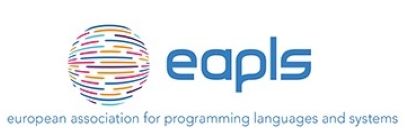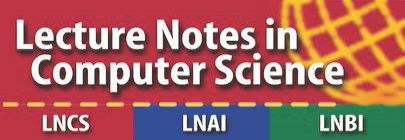Aims and Objectives
The International Colloquium on Theoretical Aspects of Computing (ICTAC) was founded in 2004. It takes place every year preferably in a developing country. The aim of the colloquium is to bring together practitioners and researchers from academia, industry and government to present research results, and exchange experience, ideas, and solutions for their problems in theoretical aspects of computing. Beyond these scholarly goals, another main purpose of the conference is to promote cooperation in research and education between participants and their institutions, from developing and industrial countries.
Program
The main conference normally lasts three days, but is typically enriched with a school and, possibly, tutorials. All should be welcome to the school, but it should be targetted specifically at (local) students and early career researchers, with courses presented by invited speakers before the main conference. The tutorials, if any, should be targeted at the conference participants and can be presented either by international or local invited speakers. In total, the technical programme should cover at least five days. The school itself can run for up to one week.
Proceedings
The proceedings of the conference are being published in the Springer Lecture Notes in Computer Science series.
Principles and Procedure
When organising an ICTAC edition, the following principles and procedure are followed:
-
The Steering Committee (SC) is responsible for appointing, for each event:
a. The General Chair(s), which is(are) responsible for the logistic and financial success of the event. They are also the main point of contact of the SC regarding any of these matters. We note, however that, the term "General Chair" does not have a universally accepted meaning, and the SC is happy for the General Chairs to adopt any title that best reflects their responsibilities, as explained above, in the community where the event takes place. Some examples of alternative terms are "Organisation Chair" or "Conference Chair".
b. The Programme Chair(s), which is(are) responsible for the success and quality of the event from an academic point of view. This should be done 18 months before the conference.
-
The conference general chairs appoint the local organization team and provide them with guidance concerning local organization and providing support in mobilizing local resources needed for the organization of the conference. The general chairs are primarily responsible for fund raising needed for the organization. They also play a role in ceremonial activities.
-
The program chairs are in charge of the academic activities of the conference, including the organization of the Program Committee (PC) and selecting Keynote Speakers, conducting the process of review and selection of papers, publication of the proceedings, and organization and implementation of the conference program (with help from the general chairs and local organization team).
-
The General and PC chairs, in agreement, decide and invite publicity chairs and workshop chairs if they see necessary. The nomination of a publicity chair is, in particular, strongly recommended.
-
There should be three or four keynote speakers and it is advisable to have about 35 PC members.
-
When drawing up lists of candidates for the PC and keynote speakers, the PC chairs should consult the general chairs, and they can also ask the SC to suggest candidates.
-
The lists of candidates for the PC and keynote speakers are to be communicated to the SC for final comments before invitations are sent. It is advisable to have six to eight candidates for keynote speakers for consideration by the SC.
-
All the above discussions and consultation should be completed, and the first Call for Papers circulated, within about 6 months.
-
It is suggested that PC members are encouraged to submit papers, but the PC chairs and conference chairs should not.
-
When making the conference budget, best efforts should be made to keep the registration fee as low as possible and yet to provide interesting social and cultural activities for the participants to enjoy.
-
The organisation of a special issue in a reputable journal is strongly encouraged.
Code of Conduct
The ICTAC Steering Committee is committed to ensuring all ICTAC events uphold the highest standards of inclusivity, respect, and professionalism. As organizers, you are entrusted with implementing and fostering an environment that is welcoming, free of discrimination, harassment, or retaliation, and conducive to the open exchange of ideas.
To achieve this, the following measures must be undertaken:
Organizer Responsibilities
-
Adopt and Implement the Code of Conduct:
- Each ICTAC edition must adopt the Code of Conduct as a guiding framework. Organizers may adapt it to reflect the specific context of their event, ensuring the principles of inclusivity and respect are preserved.
-
Communicate Expectations:
- Publicize the Code of Conduct prominently across all event platforms, including the website, registration materials, and attendee communications.
- Clearly outline acceptable and unacceptable behaviors to all participants, speakers, and vendors.
-
Prevent Harassment and Discrimination:
- Design and implement proactive measures to prevent abusive, discriminatory, or harassing behaviors.
- Ensure policies and procedures are in place to address violations of the Code of Conduct promptly and fairly.
-
Provide Reporting Channels:
- Establish accessible, confidential channels for participants to report incidents of inappropriate behavior.
- Designate trained, impartial personnel to handle reports and investigate complaints in a timely manner.
-
Enforce Consequences:
- Apply sanctions consistently for violations of the Code of Conduct, up to and including removal from the event without a refund or banning individuals from future events.
-
Foster an Inclusive Atmosphere
- Strive to create a diverse and welcoming environment by ensuring balanced representation among speakers, panels, and session chairs.
- Promote accessibility by addressing physical, sensory, and language barriers.
Guiding Principles
Organizers are expected to model behavior that embodies:
- Respect for individuals of all backgrounds, identities, and perspectives.
- Integrity in enforcing the Code of Conduct impartially and transparently.
- Empathy in addressing concerns raised by participants, ensuring their comfort and safety.
To implement the corresponding codes of conducts, we ask the organizers to enforce a potentially adapted versions of the following to conduct for their addition.
Code of Diversity for ICTAC Events
Organisers of ICTAC events are asked to adopt a code of diversity to ensure that all events adhere to principles of Equality, Diversity, and Inclusion (EDI).
Goals
- Ensure equality, diversity, and inclusion (EDI) principles are considered in the organisation of ICTAC events at all levels.
- Ensure equal access to ICTAC events.
- Provide guidelines for conference organizers to consider EDI in their work.
- Provide evidence of our EDI principles.
- Complement our code of conduct in ensuring inclusive event experiences.
EDI Guidelines
- EDI concerns should cover aspects related to race, gender identity, religion, age, national origin, ancestry, disability, and sexual orientation.
- Except only in the pursuit of following the next guidance, these aspects should play no role in the decisions to invite colleagues to the various committees, in the appointments to the posts of committee chairs, in the decisions to invite colleagues to the conference, or in the outcome of any applications, including, but not restricted to paper submissions.
- Regarding gender, geographical professional affiliation, affiliation to academia or industry, and level of experience, organisers should take steps to ensure representation in the teams involved in panels, committees, committee chairing, and in the set of invited speakers, in accordance with their level of presence in the community.
- Organisers should consider mechanisms that can encourage EDI in the event and can improve representativity in the community. Some examples are use of double-blind reviewing, and positive sponsorship of attendance for underrepresented groups.
- Choice of location of events should not have an adverse effect on the pursuit of the EDI principles.
- All artefacts and events should be made accessible to all, in as far as it is practical, and certainly if needed.
Becoming an Organiser of ICTAC
Each conference attracts between 50 and 100 participants from all over the world. Every year, the Steering Committee issues a call for organisation and any group or institution wishing to host this event are invited to send their proposals. The priority is for the event to be located in a developing country. It usually combines a regular three-day scientific conference with related activities such as tutorials over another two-days and a summer school over the previous week. Innovation in the format and content is encouraged.
Proposals will be evaluated by the ICTAC Steering Committee.
Proposal Format and Submission
Proposals should be no more than four pages in length and should contain:
• Brief description of why the event is of interest to the proposer.
• Vision for the event, including its aims, the expected format and scale.
• An estimation of expected attendance, based, for example, on presence of a local community in the area and costs of travel to various parts of the world and local expenses.
• A description of the relevant qualifications and experience of the proposers, especially regarding conference organisation logistics.
• A description of the facilities that will be available for the event and to support the organisers.
• The contact information of the proposed organising committee.
The choice of a PC chair will be subject to later discussion with the Steering Committee and should not be part of the proposal.
The proposal (in PDF format) - and any inquiries from those who are from a developing country and willing to organising an ICTAC event or interested in helping organising such an event in a developing country - should be sent to Martin.Leucker@isp.uni-luebeck.de .

